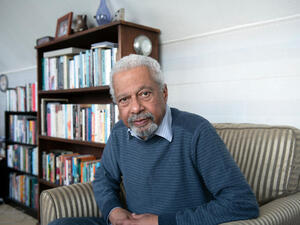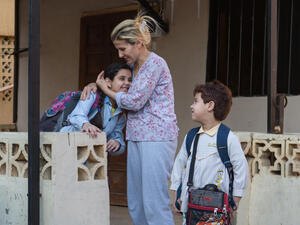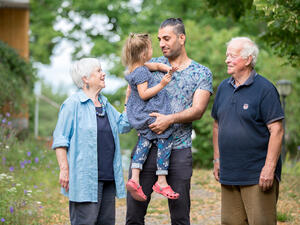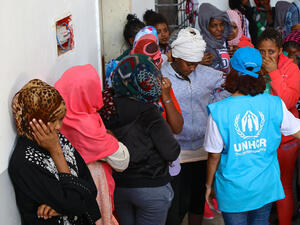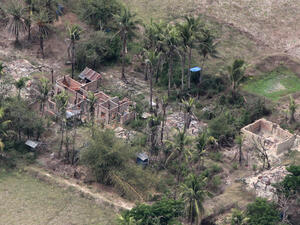New UNHCR guidelines aim to strengthen protection for Somali refugees
New UNHCR guidelines aim to strengthen protection for Somali refugees

A Somali woman carries her belongings as she flees to safety in Mogadishu a few weeks ago.
GENEVA, May 11 (UNHCR) - The UN refugee agency on Tuesday issued new guidelines aimed at promoting a stronger and more consistent approach by governments to the protection needs of civilians fleeing Somalia.
"These guidelines encourage governments to assess applications for refugee status from persons from central and southern Somalia in the broadest possible way, and to extend complementary forms of international protection, where refugee status is not granted," UNHCR's chief spokesperson, Melissa Fleming, told journalists in Geneva.
"It is UNHCR's view that asylum seekers from central and southern Somalia are in need of international protection. Those who do not meet the criteria for refugee status under the 1951 Convention or the OAU Convention should benefit from complementary forms of international protection, as applicable in situations of generalized violence or armed conflict," she added.
In view of the nature of the conflict and the dramatic humanitarian situation, UNHCR does not believe that Somali refugees can find an internal relocation alternative in central or southern Somalia." Furthermore, we consider that an internal flight alternative in Somaliland or [northern Somalia's] Puntland is generally not available for any Somali not originating from these territories," Fleming said.
Although most asylum countries will examine claims on an individual basis, UNHCR encourages countries facing large numbers of arrivals to grant protection to people from southern and central Somalia on a group basis. This is the case in neighbouring Kenya, Ethiopia, Eritrea, Djibouti and Yemen.
Over recent months, UNHCR has made clear its alarm at the worsening security and humanitarian situation in Somalia. Conditions there have been steadily deteriorating for some time and are particularly acute in the central and southern areas of the country. UNHCR and other organizations providing aid face great difficulties in reaching the needy.
"We continue to see high levels of displacement internally as well as to neighbouring countries and further afield," Fleming said, while noting that there are an estimated 1.4 million displaced people within Somalia and approximately 575,000 Somali refugees in neighbouring countries. Last year, Somalis were the third-largest group of asylum applicants in the industrialized world, with more than 22,000 claims.
"It is our view that involuntary returns to central and southern Somalia under today's circumstances would place individuals at risk. We are appealing to all governments to observe these guidelines and also to focus their energies on helping those individuals in Somalia and neighbouring countries who are bearing the brunt of this unfolding international tragedy," the UNHCR spokesperson concluded.

